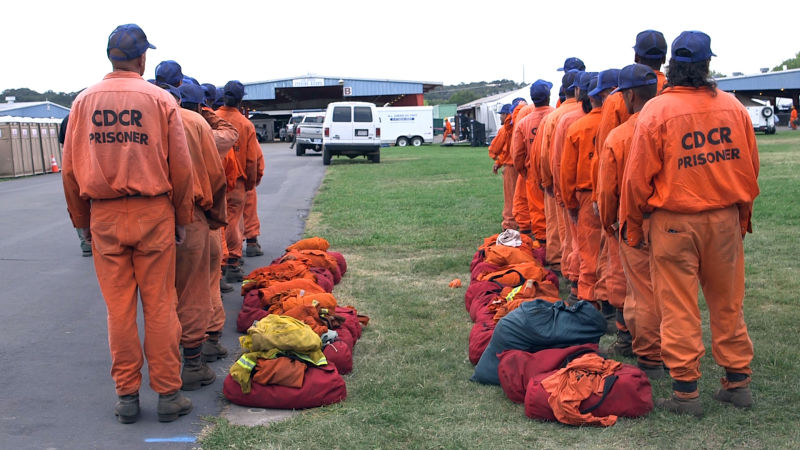California corrections officials on Tuesday dropped a plan to include prisoners with certain violent backgrounds in the nation’s largest and oldest inmate firefighting unit, a day after the proposal was first reported by The Associated Press.
The state still plans to expand the program to include inmates who have up to seven years left to serve on their sentences, instead of the current five years, Department of Corrections and Rehabilitation (CDCR) spokesman Jeffrey Callison told the AP.
But as for considering inmates who have been convicted of some violent crimes, “We will not be changing that,” he said.
A different CDCR spokesman, Bill Sessa, told KQED there were already some inmates with violent records in the program. The new changes would have simply expanded the offenses that were eligible.
KQED found at least one inmate with armed robbery on his record working in a camp last year. Sessa could not immediately say what the expanded offenses included. However, inmates serving life sentences or those convicted of murder, rape or arson were never considered for the expansion.
